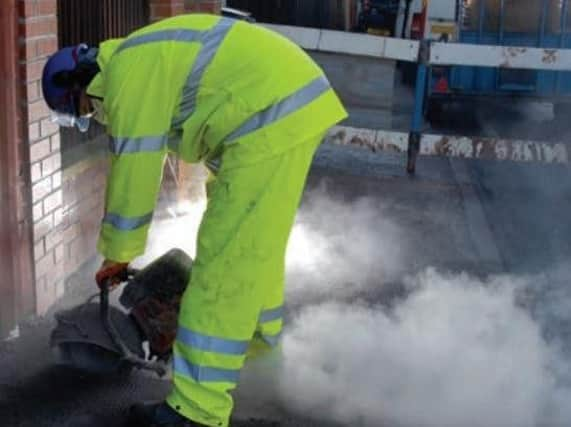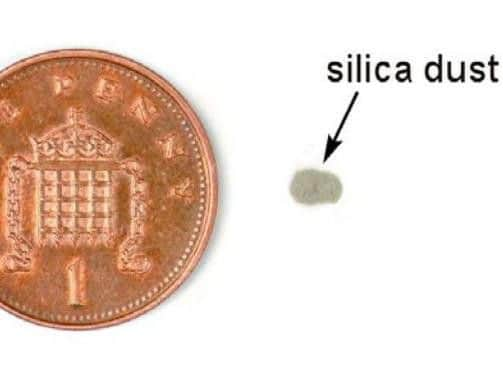Lancashire company given £20,000 fine after workers exposed to harmful cancer causing dust


Playscape Design Limited, a landscaping contractor and playgrounds installer, has been fined £20,000 and ordered to pay costs of £3,000 after failing to provide staff with adequate control measures to prevent exposure to respirable crystalline silica (RCS).
Greater Manchester Magistrates’ Court heard how on March 23 last year, the Health and Safety Executive (HSE) carried out unannounced inspection of a site at Newbank Garden Centre, Bury Road, Radcliffe.
Advertisement
Hide AdAdvertisement
Hide AdThe HSE inspector served a Prohibition Notice to stop two employees from Playscape Design Limited from using a powered tool to cut flags without any respiratory protective equipment.


This put the health of the employees at risk due to exposure to RCS, which is released when silica-containing materials are cut with a powered tool.
The HSE then served an Improvement Notice, requiring the company to provide adequate control from exposure to RCS.
The investigation found the company did not provide evidence of compliance within the deadline and a second, similar job was completed at the same site with no adequate control measures in place.
Advertisement
Hide AdAdvertisement
Hide AdPlayscape Design Limited of Ball Grove Drive, Colne, pleaded guilty to breaching Regulation 7(1) of the Control of Substances Hazardous to Health Regulations 2002.
It also admitted not complying with an Improvement Notice, which is an offence under Section 33(1)(g) of the Health and Safety at Work etc. Act 1974.
After the hearing, HSE inspector Rebecca Hamer said: "The working conditions we encountered were putting the health of the employees at risk due to exposure to RCS, which is released when silica-containing materials are cut with a powered tool.
"Exposure to respirable crystalline silica can cause life-threatening diseases including silicosis and chronic obstructive pulmonary disorder (COPD), which can lead to impaired lung function, lung cancer and death.
Advertisement
Hide AdAdvertisement
Hide Ad"This incident could so easily have been avoided by simply carrying out correct control measures and safe working practices.
"Companies should be aware that HSE will not hesitate to take appropriate enforcement action against those that fall below the required standards."
What is respirable crystalline silica?
Silica is a natural substance found in most rocks, sand and clay and in products such as bricks and concrete.
In the workplace these materials create dust when they are cut and sanded down.
Some of this dust may be fine enough to reach deep inside the lung, known as RCS, causing harm to health.
Significant exposure to RCS can cause silicosis and lung cancer.